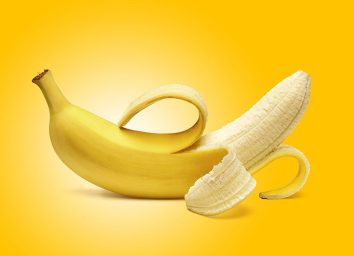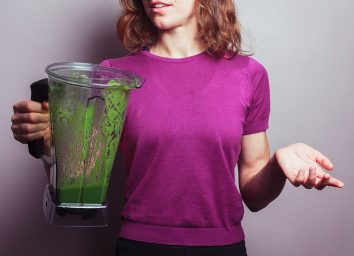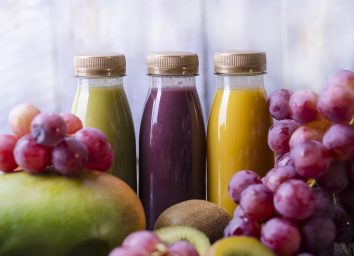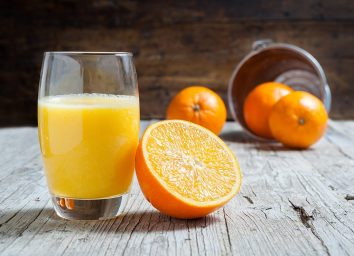27 Things a Juice Cleanse Does to Your Body
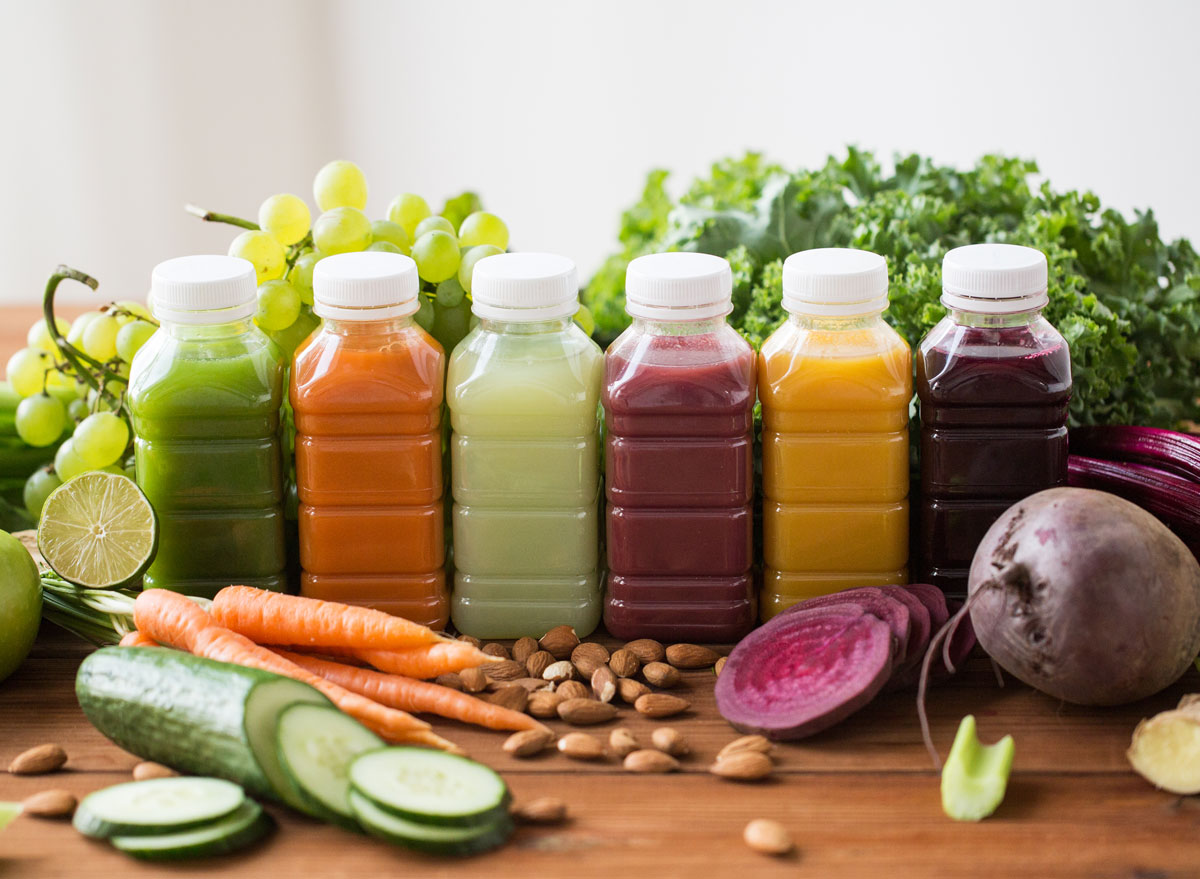
Ah, the start of a new year! Gym memberships suddenly spike, bathroom scales get dusted off, and friends start discussing which juice cleanse to try. We are 100 percent on board with this uptick in well-intentioned motivation—but we think it’s important you always know what you’re getting into.
First thing’s first: Juice cleansing is a “detox” diet that can last from a few days to several weeks in which a person consumes only fruit and vegetable juices to obtain nutrition while otherwise abstaining from eating food. Many people swear by cleanses and report an improvement to their health, mood, and appearance. The scientific community, however, is less than enthusiastic about juice cleanses—many scientists, dietitians, and doctors regard detox diets as less effective than fasting with water, and, therefore, a waste of money. That said, if you’re going to do one anyway, we recommend consulting with your doctor—or at the very least going along with an “official” juice cleanse program. Simply drinking any ol’ juice from anywhere around town is not a good idea.
Now for the nitty gritty. We enlisted the help of several nutritionists to get a feel for the kinds of things that can happen to the human body when embarking on a juice cleanse. What they came back with is essential reading for you or anyone you know who is thinking about being the conspicuously abstaining-from-food friend for a few days. If you get through the list and decide maybe you’ve changed your mind, consider jump-starting your weight loss with our brand-new book Zero Belly Smoothies instead—or gulp down some detox water on the way home from your shiny new workout digs.
Your Metabolism Will Slow Down
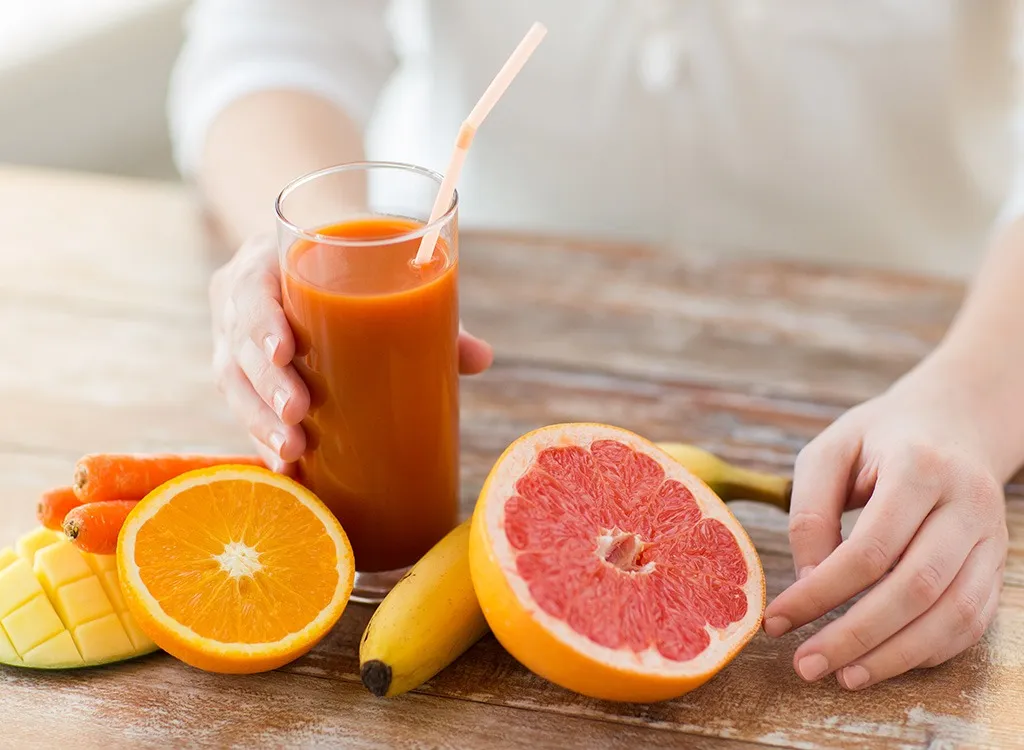
Once you stop eating enough food to meet your basic energy requirements, your metabolism will slow. For most people, that threshold of calorie intake is around 1,200 calories per day. “Your body goes into conservation mode because it doesn’t know when its next meal is going to be,” says nutritionist Ilyse Schapiro, MS, RD, CDN. She reminds us that, even though cutting calories will lead to weight loss, going too low for too long can have the opposite effect.
You Might Discover Certain Food Intolerances

Since most juice cleanses eliminate dairy, wheat, gluten, and fermented foods from your diet, you can gain a new perspective on whether any of these foods don’t agree with your body. “[Eventually] reintroducing them can help define which foods are causing problems for your body,” says Woodson Merrell, MD, Chairman of the Department of Integrative Medicine, Beth Israel Medical Center and Author of The Detox Prescription.
You’ll Be Sensitive to Cold Temperatures

Winter isn’t a great time to start a juice cleanse because many people use hot foods and beverages to help maintain body temperatures during the colder months. Picture it: When it’s 20 degrees outside, a hot tea for weight loss may be a better choice than a cold pressed juice.
You May Feel Sluggish

When consuming only fruits and vegetables via a juice cleanse, there is a decrease in the amount of calories being consumed regularly. “The body requires enough calories to be used as energy for normal body functions,” says Jim White, RD, ACSM, owner of Jim White Fitness & Nutrition Studios. “Without enough calories and energy, you could feel weak, have headaches, or have low energy.”
You May Experience Caffeine Withdrawal
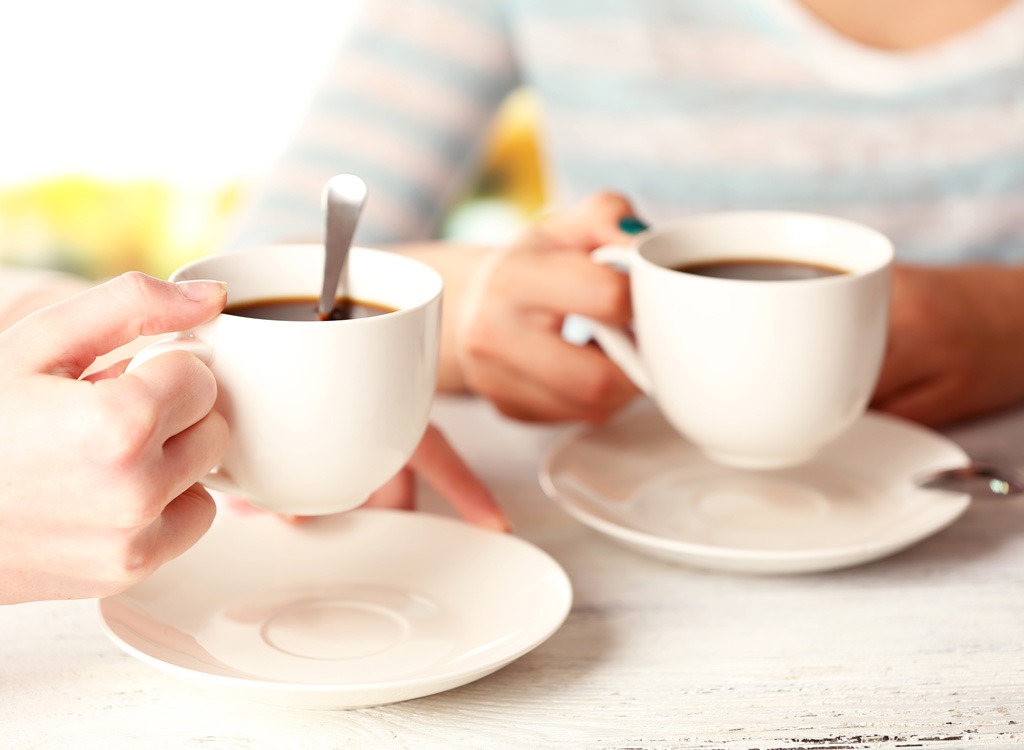
If you’re fully committed to your juice cleanse, that means you’ll have had to cut out all caffeine. “Even if you normally drink only one cup a day, eliminating caffeine cold turkey may contribute to headaches, irritability, and difficulty with concentrating,” says nutritionist Amy Shapiro, MS, RD, CDN, and founder of Real Nutrition NYC.
You’ll Drop Water Weight
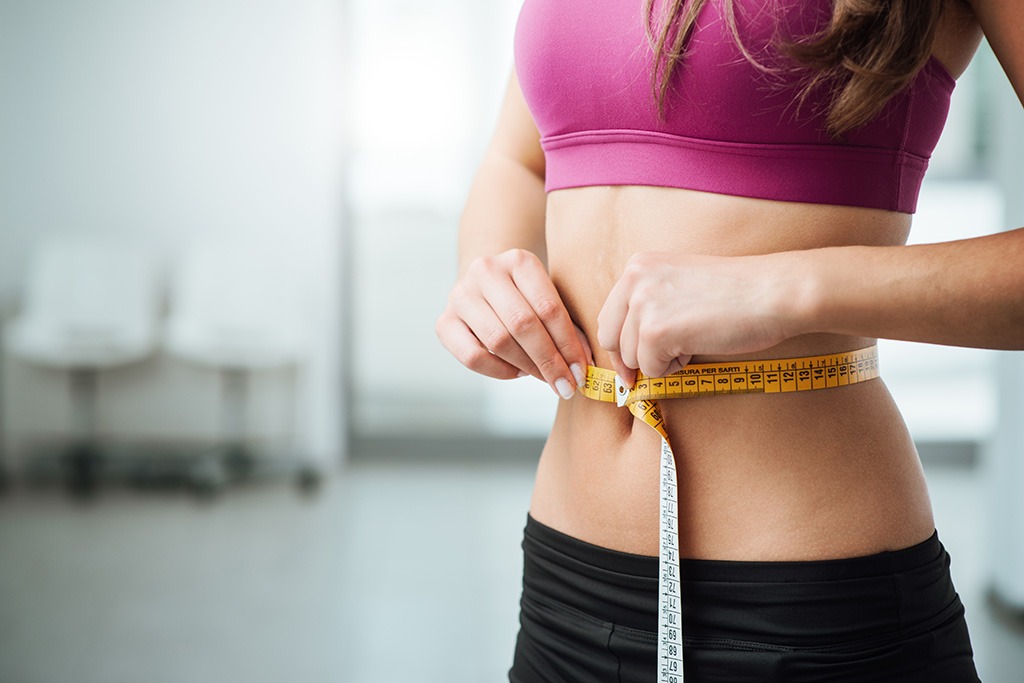
Plenty of water is locked up in your muscles along with glycogen, the storage form of energy-producing glucose. When you eat a low-calorie diet, your body will have to use up those glycogen stores for energy instead of being able to get energy from food. When you use up glycogen, you lose the water weight with it. The excitement is temporary, though; you’ll gain that water weight right back when you return to your normal diet. For non-cleansing ways to get rid of belly bloat, there are ways to shrink your belly in 24 hours!
You May Feel Lightheaded

Whether it’s made from fruit or vegetables, the juice you’re drinking on a cleanse contains a high amount of sugar. “That will cause your body to produce insulin faster, making your blood sugar drop,” says nutritionist Leah Kaufman, MS, RD, CDN, founder of Leah Kaufman Nutrition. “This results in dizziness and feeling lightheaded.”
Your Skin Can Dry Out and Age More Quickly
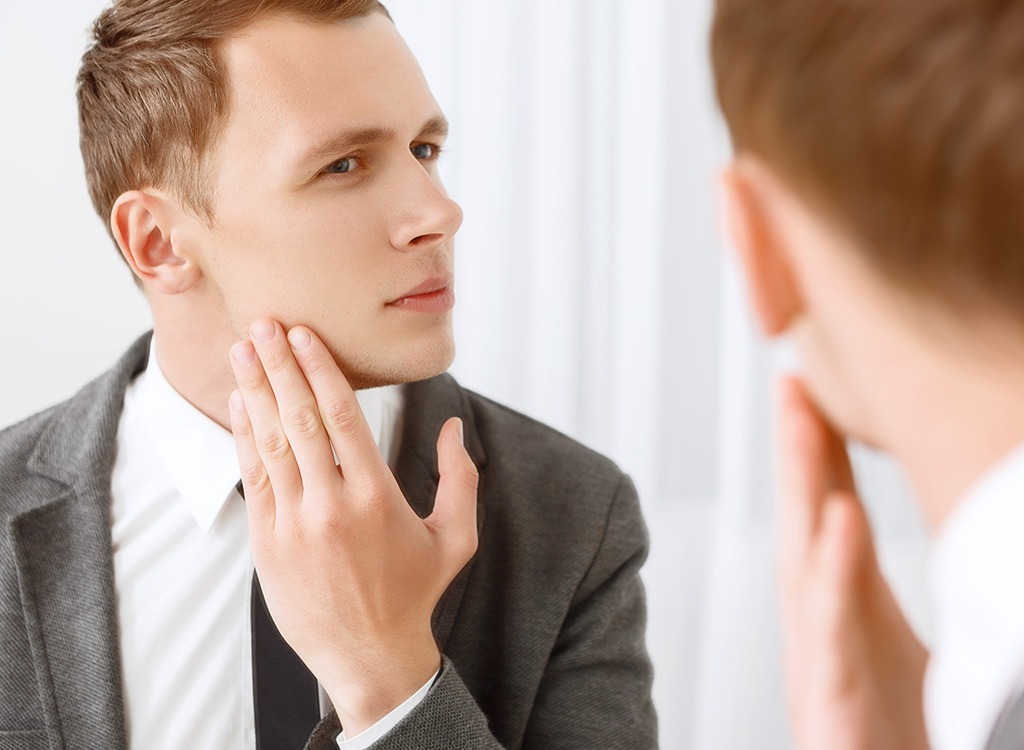
When eating a low-calorie diet, water stored in your muscles with glycogen gets used up—which causes your skin to feel dry. “Balance is the key,” says Antonia Burrell, associate lecturer in the chemistry of aromatherapy at the London College of Fashion. Burrell says that a prolonged juice cleanse can lead to a drier skin and potentially prematurely-aged skin because of the lack of essential fatty acids being consumed. Yikes!
Your Appetite May Calm Down

Although juicing doesn’t actually shrink the stomach, it does temporarily eliminate the possibility to eat for comfort. The upshot of that is that you will feel satiated with less food than usual, immediately after you’re done with the cleanse. This situation can provide a big psychological boost that some people need to experience so that they can change their eating behaviors and stop sabotaging their weight loss.
Your Hair and Nails Won’t Grow
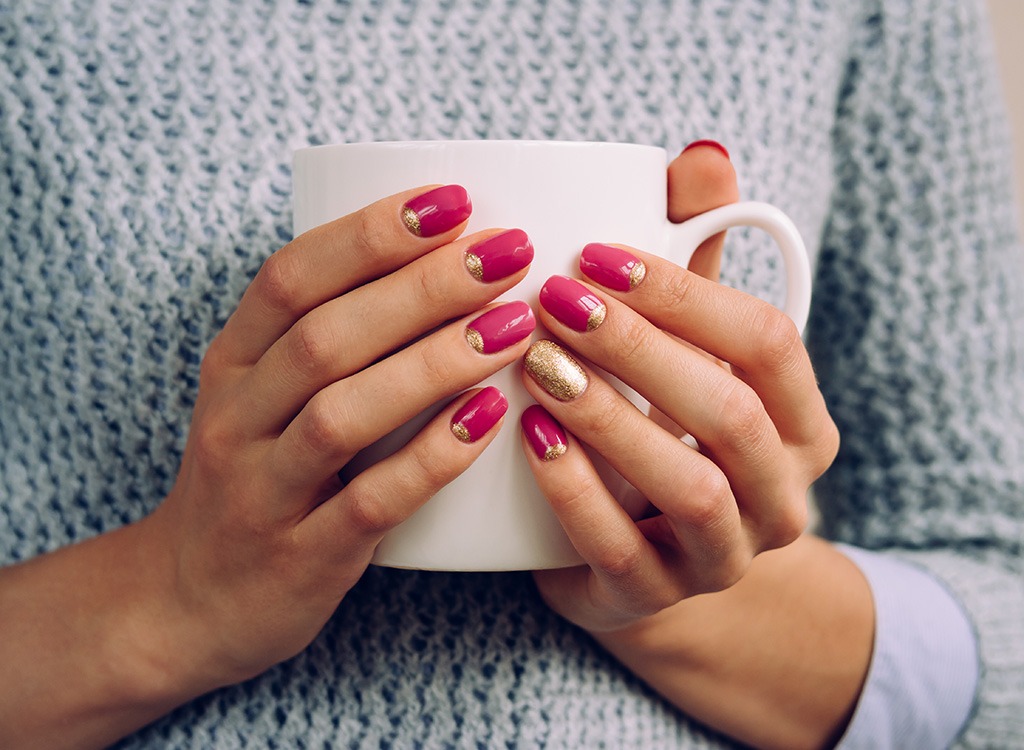
When you’re on a juice cleanse, you’re not eating a diet that contains all of the nutrients found in a balanced diet. That will some significant consequences but one change you’ll notice first is that your hair and nails aren’t growing as quickly. “Protein, fats, and carbohydrates. We need all of these for healthy skin, hair, and nails,” says Schapiro.
You’ll Experience Short-term Weight Loss
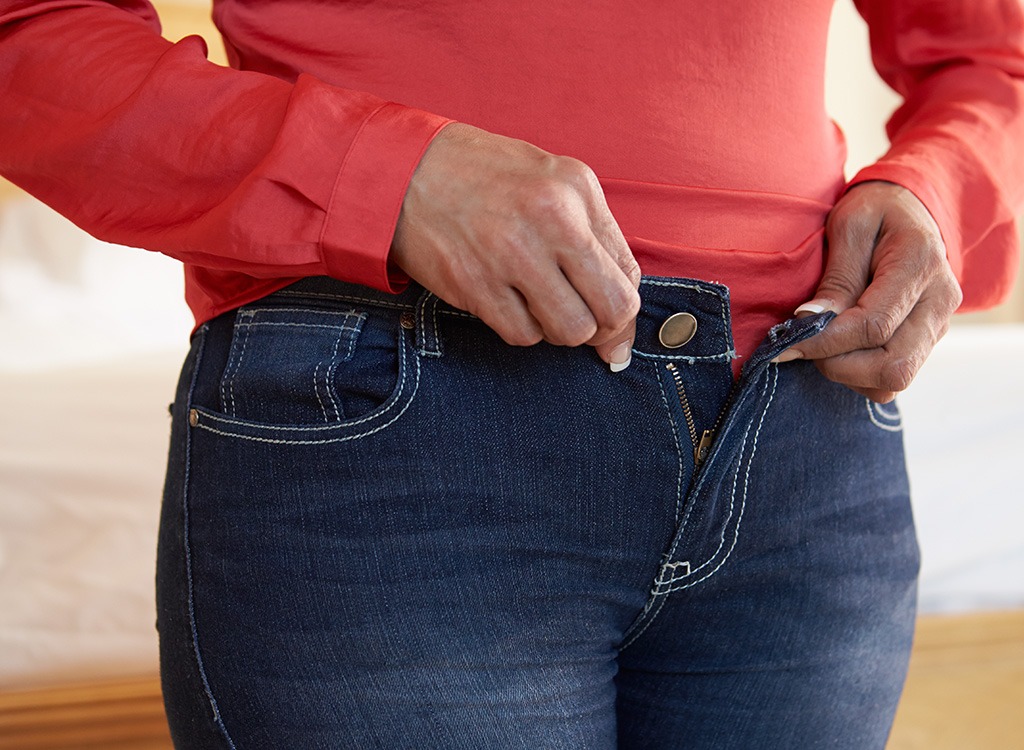
Yes, you may lose some weight right off the bat, but that weight loss is likely to be temporary. “This type of diet isn’t effective for long-term weight management, due to it being too restrictive and low in calories,” says White. To be clear, though, simply drinking juice and not having it be a fast will do the opposite of rapid weight loss: “If juicing is being done in addition to an unchanged routine of diet and a sedentary lifestyle, then it will increase calories and result in weight gain.”
You’ll Have Random Bursts of Energy

The bursts are usually fleeting and temporary. You may feel increased energy due to the quick-absorbing carbohydrates and hydration; however, in the long term, cleanses with low to no fiber and protein could hurt your body.
You Might Get a Little Depressed

While fruits and vegetables contain many different nutrients that are beneficial to your body, the juices you drink will not contain much in the form of protein, healthy fat, or fiber. “Your brain won’t be getting enough fatty acids,” says Kaufman. “This can result in you feeling depressed and sad since [you’re missing] omega-3s, which are known to increase serotonin levels. And because you won’t be getting enough protein, your muscle mass will decrease and you will not have much energy.”
You Could Damage Your Teeth

“Diets like juice cleanses can cause insulin levels to peak and then plummet,” says dentist Dr. Sameer Patel. “Over time, this alters the structure of collagen in the body and therefore affects your gums and the collagen fibers that hold your teeth in place. Not only that, the juice from fruit and vegetables, especially fruit, tend to have a high acid content, which severely damages the enamel of your teeth in a similar way to fizzy drinks [and soda]. Ultimately this can lead to teeth sensitivity as the protective layer of enamel is worn down and eroded by the juice.”
Vitamins Don’t Get Delivered Like They Should
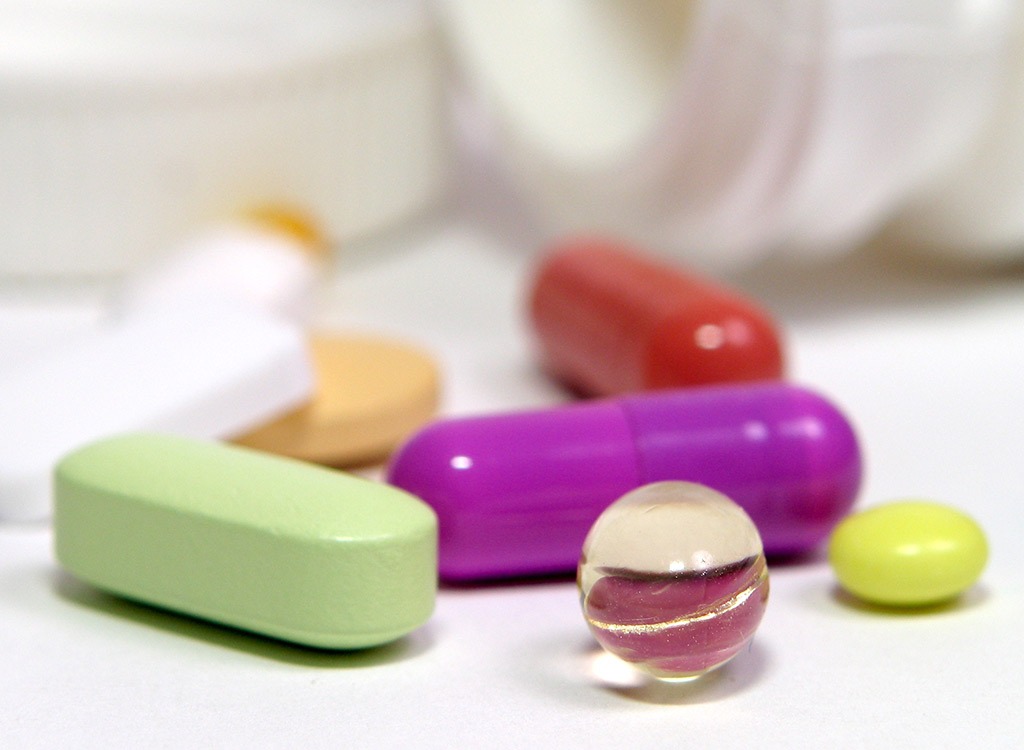
You know how a tangerine can help your body absorb the iron in spinach? That kind of food-combo teamwork is a real thing and can be really affected by a juice cleanse. “Good fats are very important for the correct functioning of our body’s internal processes. Removing these from the diet can mean the body can’t perform at its optimum level,” says nutrition expert Emma Brown.”For example, fat-soluble vitamins A, D, K and E require fats in the diet in order to be absorbed. If your diet does not include some fat, the uptake of these vitamins from food will be limited.”
Your Gastrointestinal Tract Starts to Shut Down
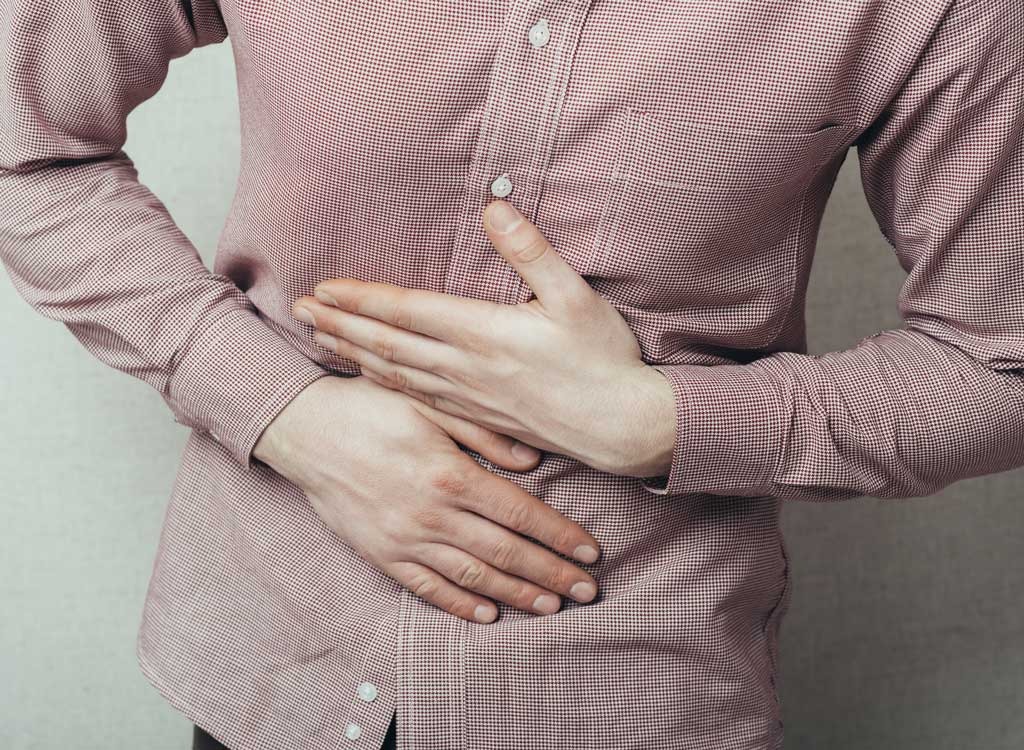
According to Shapiro, juicing strips down whole fruits and vegetables of any tough cell walls or other plant matter that your body relies on its digestive enzymes to break down and absorb. “When you stop using these digestive enzymes, your body thinks you don’t need to produce them anymore,” she says. “This can lead to discomfort when reintroducing foods after even one day of juicing.” This can lead to a lot of confusion or misguided conclusions, as you try to figure out which foods ail you (as mentioned in #2).
Your Breath May Stink
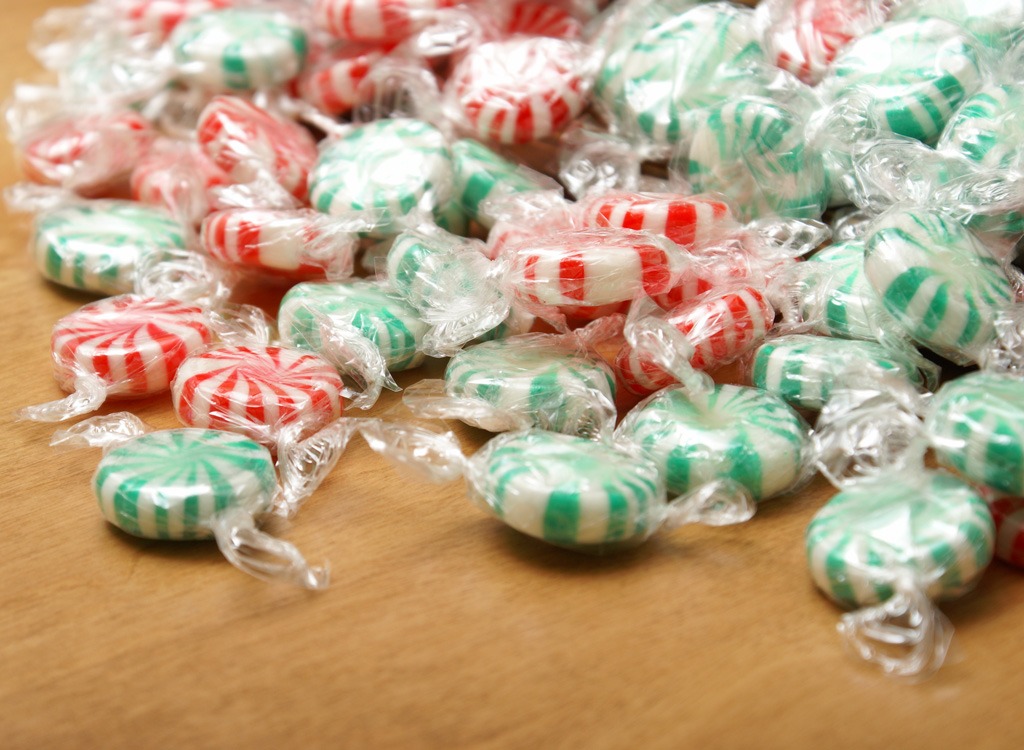
This one is so interesting (but makes sense!) that it’s almost comical. “Your breath may smell bad because saliva production decreases because our bodies conserve saliva in hopes of eating food,” says Schapiro. “Saliva is only emitted when we consume food. When saliva production is low, bacteria builds up. Eating food can solve the problem because our salivary glands are stimulated when we chew.”
You Lose a Little Muscle Mass

Juicing fruits and vegetables can actually strip out vitamins and minerals like Vitamin D, E, B, essential fatty acids, and fiber, particularly if you’re filtering the pulp out of the juice. “If food consumption is restricted to purely juicing, the body could be void of protein, which could make maintaining muscle mass difficult,” says White.
You’ll Get a Nutrient Boost
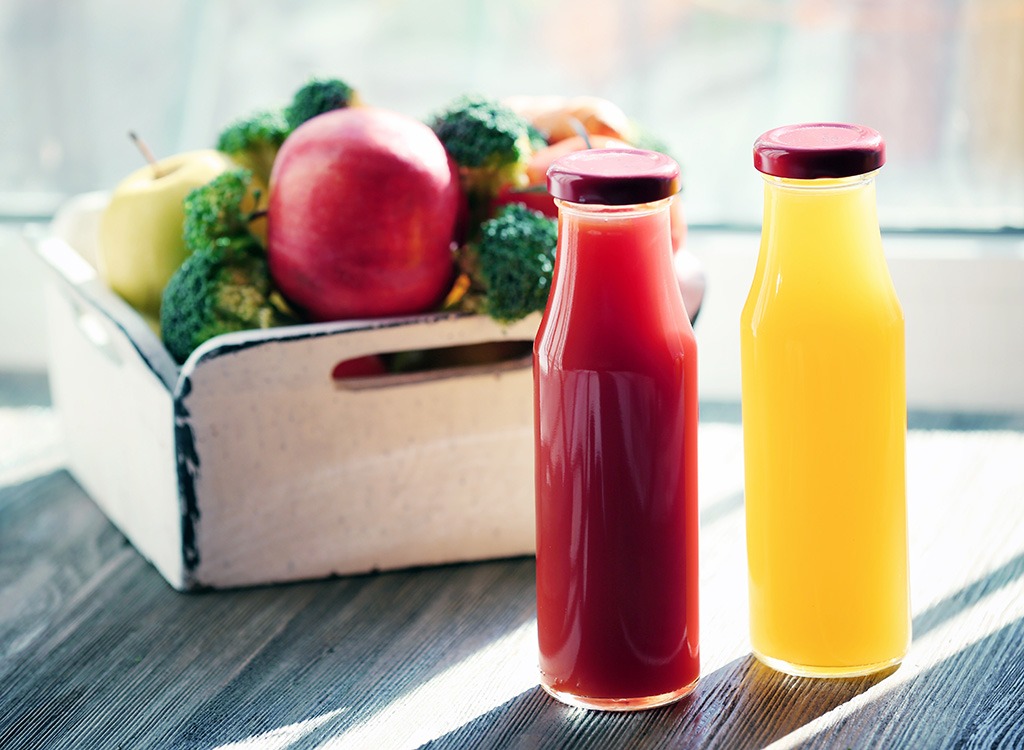
On the flip side, you may also get a dose of nutrients that you weren’t getting—especially if you were reaching for a lot of carbs during your regular day-to-day. Juices are an easy way to drink vitamins and nutrients since they are readily available in liquid form; however, they should be used as a supplement and not as a substitute for a balanced diet.
Your Weight Loss Will Be Confusing
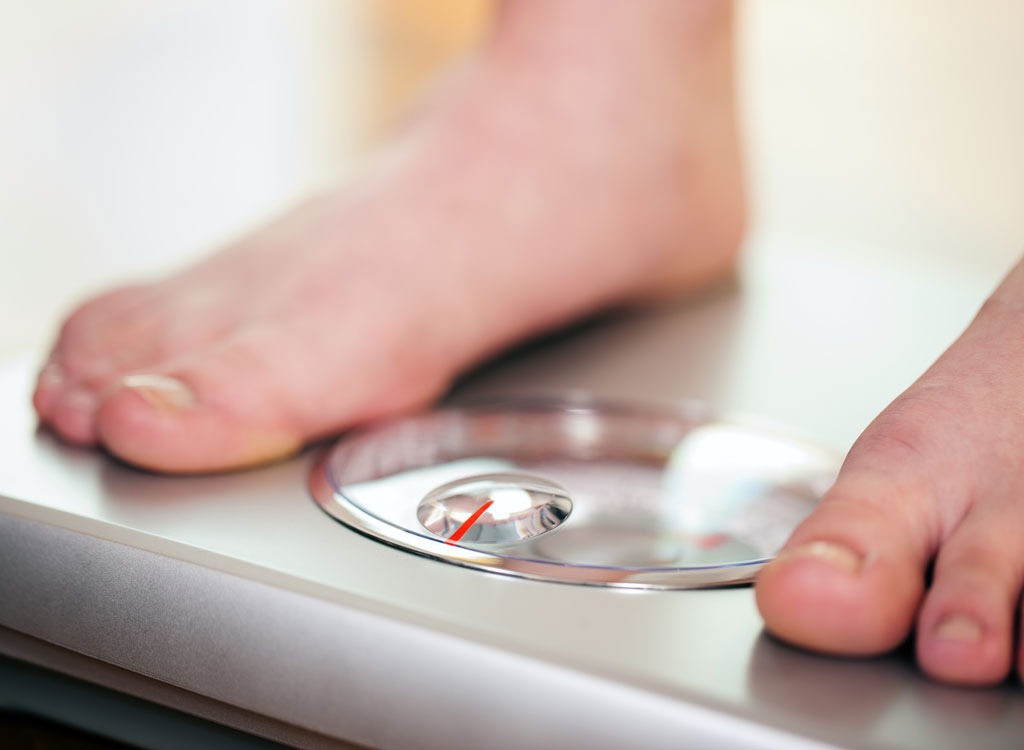
You will lose weight while on the cleanse, but it will be from your muscles and from water weight. “Losing weight like this can cause dizziness, nausea, constipation, and fatigue,” says Kaufman. “It’s very likely that you will gain all the weight back once you’re off the cleanse because you have less muscle mass to burn off the calories.” This kind of change to your body is a perfect example of sneaky reasons you gain weight.
You’ll Probably Have Some Diarrhea

Get ready for those sudden urges. “Liquids pass through the digestive tract much more quickly than solid foods,” explains Shapiro. “You may find yourself running to the bathroom much more often when you’re on a juice cleanse, even though you’re consuming so much less than usual.”
You Can Heal Your Cells
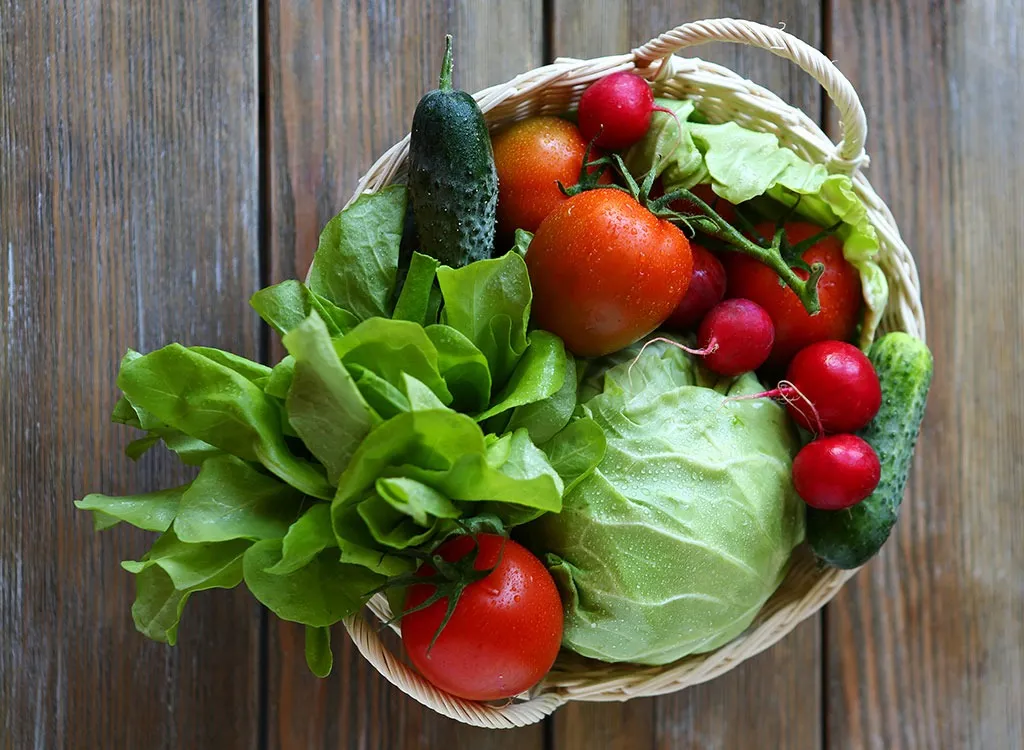
This is less about the juice cleanse and more about what can happen when you go vegan. “Switching to an organic, plant-based diet allows cells to work optimally to re-establish efficient internal messaging and manufacturing processes,” says Merrell. “This allows the mitochondria to create energy without having to fight off a plethora of free radicals and inflammation, and reduces some of the impediments to proper DNA functioning.”
You’ll Get Hangry and Cranky

Many juice cleanses limit you to around 1,000 calories a day (or less). Leslie Schilling, RDN, LDN, Memphis-based dietitian and owner of Schilling Nutrition Therapy, LLC, says that this low calorie-intake can make you feel supremely irritable. And cutting calories and not being able to chew food like we are made to do really is enough to make anyone moody. “Your blood sugar will spike from drinking the juice, and then it will crash and lead to mood swings,” warns Schapiro. Why not try one of these instant-happiness, mood-boosting foods instead?
You Could Damage Your Liver

The effects of too much sugar or fructose can be likened to the effects of alcohol: It severely taxes and overloads the organ, leading to potential liver damage. Juicers should be conscious of this because many pre-packaged juices found at the store contain high amounts of sugar. “Homemade juice recipes also call for multiple servings of fruit to help make the drink taste more appealing, but this increases the sugar content,” says White.
Your Brain is Deprived

Schapiro warns that juice cleansers may experience confusion because limiting important nutrients like protein can lead to decreased brain function and disruptions in neurotransmitters, which rely on protein to do their job.
Your Kidneys and Liver Can’t Do Their Thing
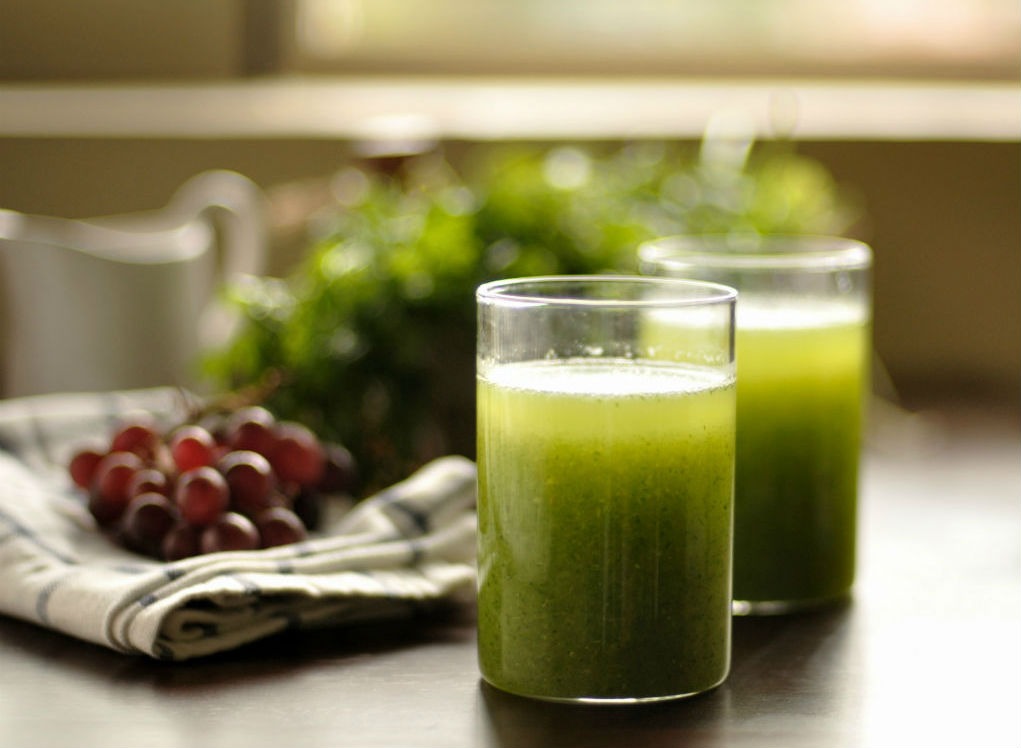
Have you ever heard someone say you don’t need to do a detox because your body detoxes itself? Well, it’s true; allow us to explain: The function of the liver and kidneys is to detoxify the body. The liver regulates the blood’s chemical levels while the kidneys help remove waste from the body to be excreted in the urine. “These processes occur in the body naturally,” says White. “Consuming a drink meant to encourage a ‘detox’ has no effect, especially when the drink is void of essential vitamins and minerals.”
You May Lose Your Focus
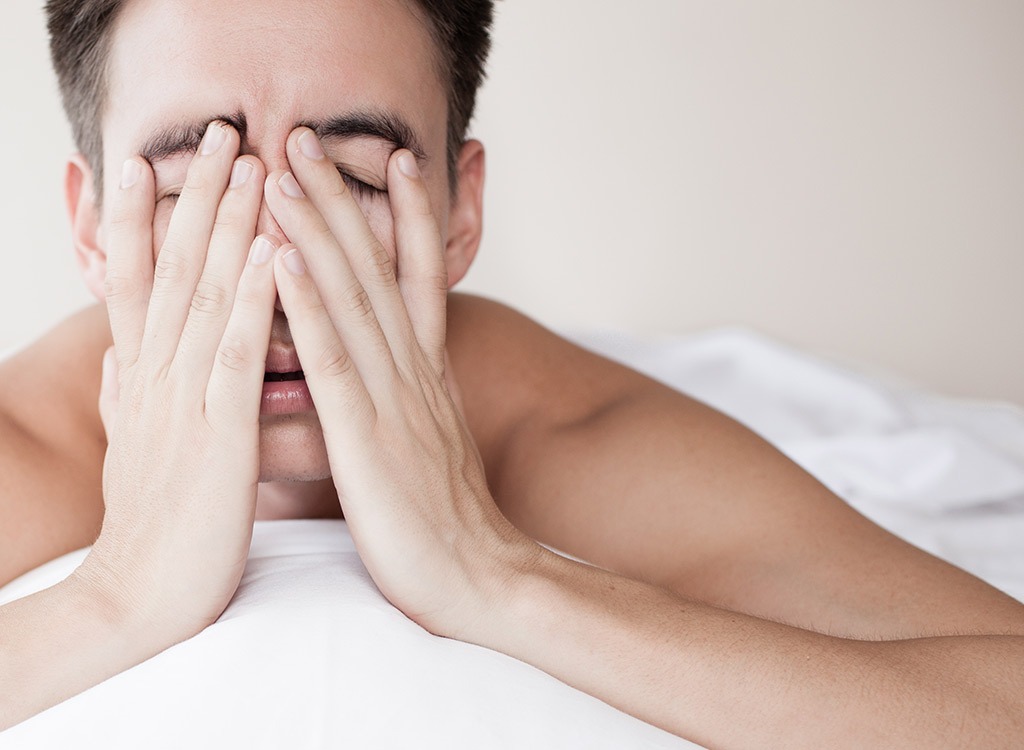
Focusing on tasks could become more of a challenge during a cleanse. “Because you’ve decreased the normal amount of calories you usually eat, you will begin to feel tired, sluggish, and you will start to lose muscle mass because your body is taking the protein out of your muscles to give you energy,” says Kaufman. Our point: It’s not just your body that can tire during a cleanse, but your mind can, too.
